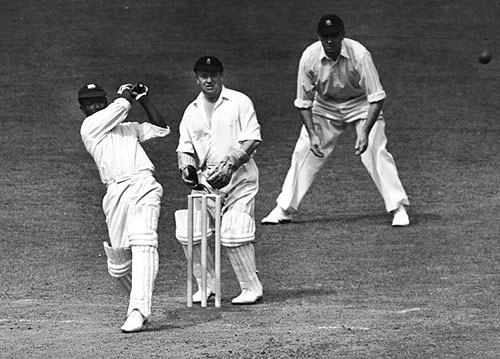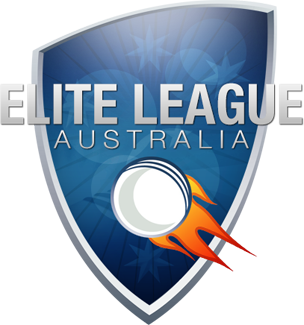
At number 3 I have The Black Bradman, George Headley. He dominated attacks with style. Between the wars, the West Indies batting was weak an vulnerable. Amongst his lesser teammates, and indeed his great opponents, Headley shone and stood out like a diamond in the rough. He was the first to score a hundred in each innings of a Test at Lord's (1939). Clarrie Grimmett described Headley as the strongest on-side player he had ever bowled against. Sir Leonard Hutton, who saw him at his best in 1939, declared he had never seen a batsman play the ball later. In 22 matches (40 innings) he scored 2190 runs, averaginh 61 with a quite astounding conversion rate which meant he scored 10 centuries and 5 fifties. At number 3, where I am picking him, his record is even better. In 19 matches (32 innings) he scored 2064 runs at an average of 71 with 10 centuries and 4 fifties. He was chosen as Wisden Cricketer of the Year 1934. The war greatly cut short his career. Although he returned to Tests in 1948. injuries meant that he could not achieve his previous levels of success. Even so, he was chosen as West Indies captain in 1948 against England, the first black player to be appointed to the position, although a combination of injuries and politics meant he only led his team for one Test match. It is for no fault of his own that Headley played so few tests. However, even with the low number of tests he played, his talent and ability was obvious and he achieved more than enough in that short space of time to make it into my team. In fact, he would have made it into Richie's (was one of the 3 shortlisted alongside Wally and Bradman) if it wasn't for Bradman's sheer unmatched domination of the sport.
- Wisden Cricketer of the Year 1934

For my first middle order batsman I have Ken Barrington. Barrington was a run machine. He averaged 70 away from home in alien conditions and 51 at home on some of the most trying pitches a batsman could hope to come across. He made hundreds against all the Test teams of his era, but less than a third in England which partially accounts for his greater reputation abroad than at home. This proves that he was a highly skilled and talented batsman who could adapt to conditions which he didn't come across in England. Barrington's hundreds ensured that England only lost one Test in which he scored 100+, but also won eight, belaying his reputation as a match-saver rather than a match-winner. In fact, a fair few of these victories were by huge margins; four by an innings, one by 256 runs and three by 10, 9, and 8 wickets. Barrington twice made centuries in four successive Tests, against Pakistan and Indian in 1961-62 and Pakistan and the West Indies in 1967-68 and he was the first England batsmen to make a hundred on the six Test cricket grounds with one each at Old Trafford, Edgbaston, Headingley, Lords, Trent Bridge and the Oval. Barrington scored 6806 Test runs at an average (58.67) surpassed for England only by Herbert Sutcliffe.
- Wisden Cricketer of the Year 1960
- Walter Lawrence Trophy 1966

Joining him in the middle order is the great, and one of my favorites of all time, Graeme Pollock. Graeme Pollock was classed as the finest left handed batsman in cricket by Sir Donald Bradman himself and is regarded by many as South Africa's greatest cricketer. He was South Africa's Cricketer of the 20th Century and one of Wisden's Cricketers of the Year in 1966 and the Wisden Leading Cricketer in the World in 1967 and 1969. His test average is second only to Sir Donald Bradman. Though his career was cut short at 26, Graeme Pollock will still go down as one of the game's finest players. To have to play your last test at 26 and not know it was your last until years later having lived many a year in the false hope that cricket would come back to South Africa must have been devastating, especially considering how much more a batsman of his skill could have achieved. However In 23 tests and 43 innings he scored 2256 runs with 7 centuries and 11 fifties at an average of 61. In those 23 tests, he proved that he could step up to the big stage, and in fact, thrived on this pressure of having to perform against the world's best. His test average is 60.97 while his FC average is 54.67.
- Wisden Cricketer of the Year 1966
Sir Jack Hobbs
Sunil Gavaskar
George Headley
Jacques Kallis
Graeme Pollock (LHB)
Ken Barrington
7
Sir Richard Hadlee (LHB)
9
Dennis Lillee
Allan Donald












 ), most of those guys you've listed have barely played Test cricket, if at all (Warner). So to put them in the frame for all time greatest fielders seems a bit of a stretch. And yes you are right, Jonty probably would have been a great slipper, and yes, fortune (and some sustained good batting) has allowed Ponting to survive and field in more places over his career. But fortune plays a part in many things in cricket history... Anyway, how about I just say that Ponting has one of the most impressive fielding resumes in history. We all know how good he is/was.
), most of those guys you've listed have barely played Test cricket, if at all (Warner). So to put them in the frame for all time greatest fielders seems a bit of a stretch. And yes you are right, Jonty probably would have been a great slipper, and yes, fortune (and some sustained good batting) has allowed Ponting to survive and field in more places over his career. But fortune plays a part in many things in cricket history... Anyway, how about I just say that Ponting has one of the most impressive fielding resumes in history. We all know how good he is/was.  I considered Pollock as the leftie at #4 instead of Border, but I've been turned off projecting how great players might have been ever since Mike Hussey took his big average fall (and Ponting too I guess). We'll also have to see where a certain England #3 will end up, because his record after 20 Tests is very similar to Pollock's and Headley's. Still, there is certainly some talent in there, Pollock in particular gets raved about by those of his era. Barrington's the guy I was thinking of when I was talking about how combining the innings played at 4 and 5 would be a bit misleading. He's got an almost equal spread of innings between 3,4 and 5, and if you combined 4 and 5, then he'd be ruled out of the #3 spot, which is where he played his best. That's a very nice XI you've got there now...
I considered Pollock as the leftie at #4 instead of Border, but I've been turned off projecting how great players might have been ever since Mike Hussey took his big average fall (and Ponting too I guess). We'll also have to see where a certain England #3 will end up, because his record after 20 Tests is very similar to Pollock's and Headley's. Still, there is certainly some talent in there, Pollock in particular gets raved about by those of his era. Barrington's the guy I was thinking of when I was talking about how combining the innings played at 4 and 5 would be a bit misleading. He's got an almost equal spread of innings between 3,4 and 5, and if you combined 4 and 5, then he'd be ruled out of the #3 spot, which is where he played his best. That's a very nice XI you've got there now...